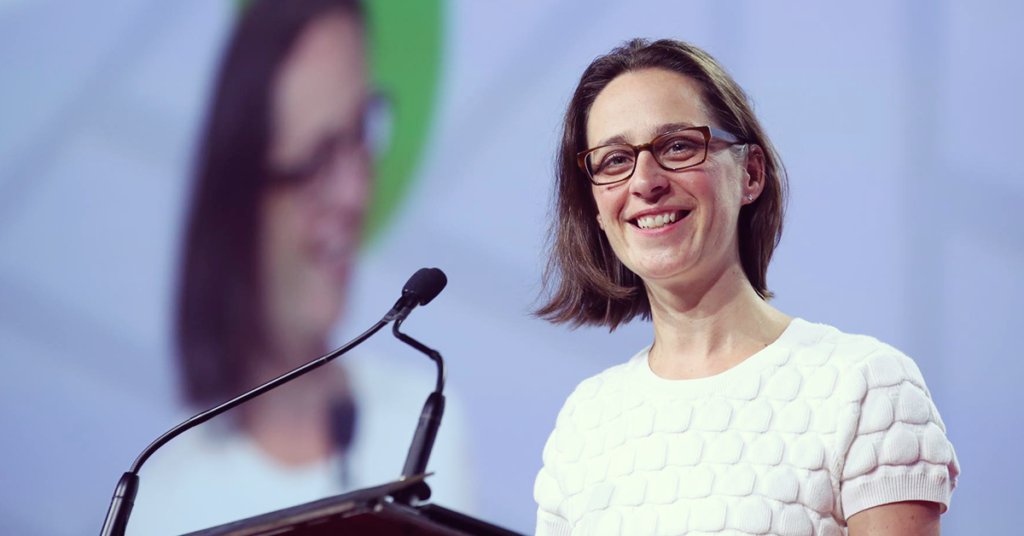In Canadian politics, people come before special interests – and strong federal rules help guarantee it
October 28, 2016

As President of the Liberal Party of Canada, I have always been first and foremost a volunteer – and I have seen firsthand how campaigns rely on grassroots political donations to engage Canadians about their ideas. Those contributions from Canadians were essential in our work to support real change in 2015, and they are just as important today for every party’s work to involve Canadians in our democracy.
Recent criticisms and accusations about fundraising in federal politics might leave some with the alarming impression that our democracy has been somehow hijacked by special interests. While we watch billion-dollar campaigns and ‘Super-PACs’ conduct their own high-stakes battles south of the border, Canadians should be reassured that our political process is much different here at home.
Canadian federal politics is governed by some of the strictest political financing regulations found anywhere in our country or across North America, and rightfully so.
“Justin Trudeau’s government currently has 83 consultations open to the public at no cost, and Liberal Ministers have already hosted more open consultations, town hall, and Facebook live discussions with Canadians in one year than Conservative Ministers hosted in ten years.”
Unlike in many provinces, and unlike in many American contexts, federal politics has had a complete ban on all corporate and union donations for over a decade. Individuals making political donations also face strict limits of no more than a total of $1,525 in any one calendar year, and every campaign donation over $200 must be disclosed on Elections Canada’s website four times a year – for both the public and the press to see at any time.
These are important rules to ensure that special interest groups cannot purchase influence on the work of elected representatives from every political party in our Parliament.
In an April editorial, the Globe and Mail suggested provinces adopt these “excellent rules governing donations at the federal level – whose cornerstone principle is that only citizens should be allowed to donate to political parties.”
The Globe’s advice to provinces earlier this year was clear: “Photocopy the legislation. Pass it into law in your province. Problem solved.”
Other jurisdictions would do well to heed that advice. Since these rules were enacted and strengthened by both Liberal and Conservative governments between 2003 and 2006, the number of individuals making political contributions has skyrocketed to include an increasingly broad group of Canadians. In 2015 alone, a total of 330,456 Canadians donated to our three largest national political parties – up from only 115,908 Canadians in 2004.
“We have to recognize that fundraising, when conducted in accordance with the rules, plays a vital role in supporting democratic engagement.”
These are engaged and committed citizens seeking to support candidates they believe in, not people who are seeking or receiving special access.
In fact, Justin Trudeau’s government currently has 83 consultations open to the public at no cost, and Liberal Ministers have already hosted more open consultations, town hall, and Facebook live discussions with Canadians in one year than Conservative Ministers hosted in ten years.
Like all federal political parties though, the Liberal Party of Canada is a national volunteer organization and it relies solely on individual Canadians to fund its entire political engagement work – whether that consists of pizza for volunteers, pamphlets informing neighbours about a town hall, campaign offices, or clipboards for conversations with voters.
The Conservatives were in power under the same strict fundraising rules as well. Conservatives like Joe Oliver, Lisa Raitt, Jason Kenney, Kellie Leitch and Chris Alexander all joined their party for an extensive series of fundraising events ranging up to $1500 per person – and those events have continued with Rona Ambrose as their Interim Leader. The NDP has also accepted hundreds of donations at the same level.
Our approach to political fundraising has to be based on much more than the latest political posturing. We have to recognize that fundraising, when conducted in accordance with the rules, plays a vital role in supporting democratic engagement, and then we have to work together to ensure it is always conducted with the utmost integrity and transparency.
As we go about that work and continue to make government and Parliament more open, accountable, and transparent than ever before, we can be grateful that our fundraising hasn’t been pushed to the backrooms, and that our elected MPs campaign with some of the strongest political fundraising rules you can find.
While that may not yet be the case in the politics of every Canadian city or province, these rules are an important guarantor of integrity in Canadian federal politics. These rules make our democracy stronger, and so do these donations from Canadians themselves.
Anna Gainey has served as President of the Liberal Party of Canada since 2014, and currently resides in Montreal.